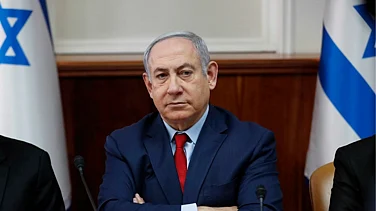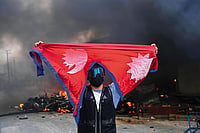China’s nuclear arsenal continues to expand amid escalating geopolitical tensions, the report said on Monday.
According to the news agency—AFP, China’s had continued to expand its nuclear arsenal and other atomic powers.
"We are approaching, or maybe have already reached, the end of a long period of the number of nuclear weapons worldwide declining," the report quoted Dan Smith, director of the Stockholm International Peace Research Institute (SIPRI).
It said the total amount of nuclear warheads among the nine nuclear powers—Britain, China, France, India, Israel, North Korea, Pakistan, Russia and the United States -- was down to 12,512 at the outset of 2023, from 12,710 at the start of 2022.
“Of those, 9,576 were in military stockpiles for potential use, 86 more than a year earlier,” it said.
The report mentioned SIPRI distinguishes between countries' stockpiles available for use and their total inventory -- which includes older ones scheduled to be dismantled.
"The stockpile is the usable nuclear warheads, and those numbers are beginning to tick up," the report quoted Smith as having said.
It noted that numbers are still far from the over 70,000 seen during the 1980s.
The bulk of the increase was from China, which increased its stockpile from 350 to 410 warheads, it mentioned.
It added India, Pakistan and North Korea also upped their stockpiles and Russia's grew to a smaller extent, from 4,477 to 4,489, while the remaining nuclear powers maintained the size of their arsenal.
Russia and the United States together still have almost 90 percent of all nuclear weapons, it stated.
"The big picture is we've had over 30 years of the number of nuclear warheads coming down, and we see that process coming to an end now," Smith said, as per the report.
It said researchers at SIPRI also noted that diplomatic efforts on nuclear arms control and disarmament had suffered setbacks following Russia's invasion of Ukraine.
For instance, the United States suspended its "bilateral strategic stability dialogue" with Russia in the wake of the invasion, it said.
China has also invested heavily in all parts of its military as its economy and influence have grown, it added





















